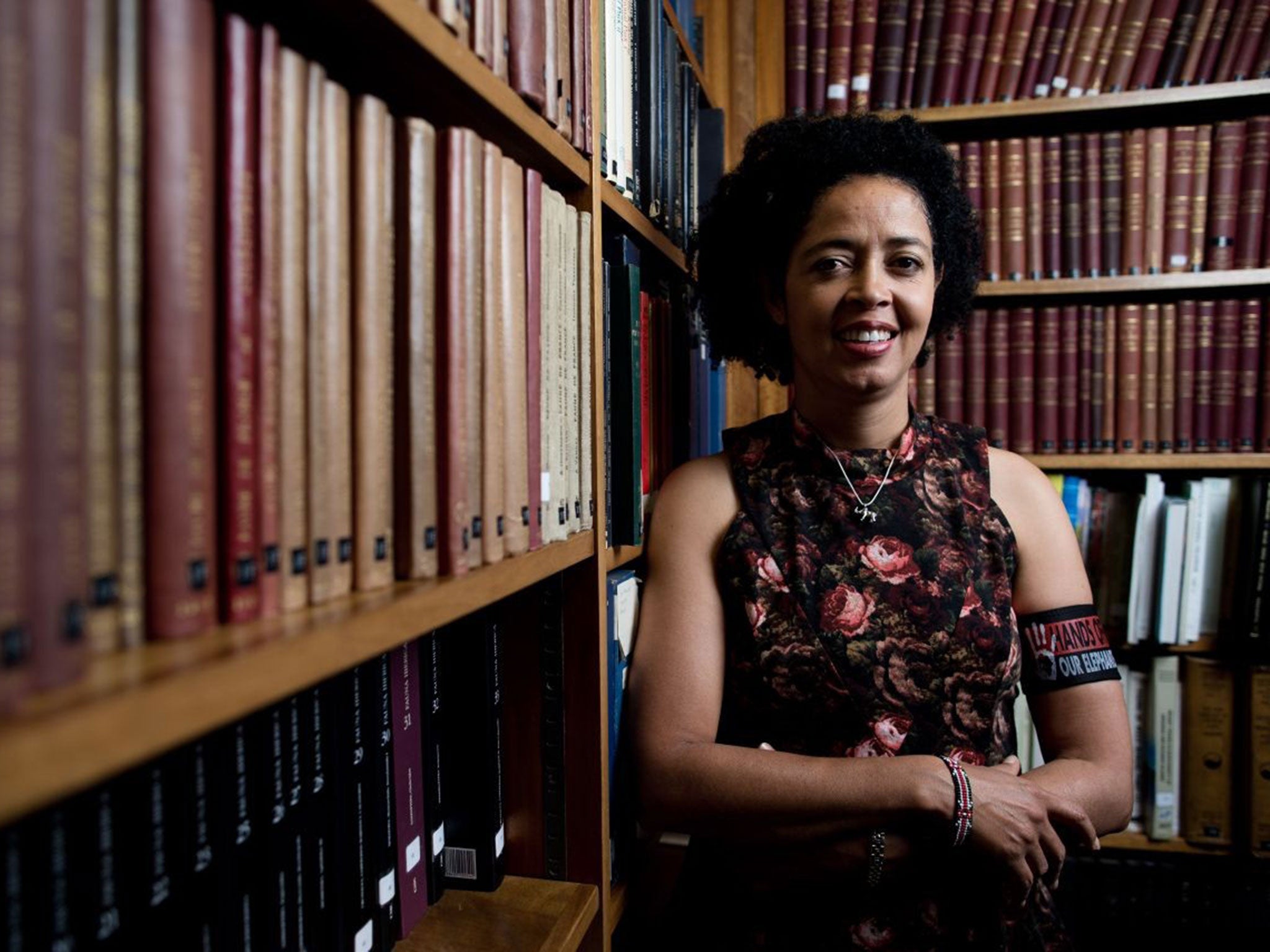Dr Paula Kahumbu interview: Africans must be equal partners in a war on Elephant poachers
Conservationist Paula Kahumbu tells Sarah Morrison what the London Conference’s top priorities should be

As I travelled around Kenya for The Independent’s Elephant Appeal, there was one name that peppered almost every discussion: Dr Paula Kahumbu.
Everyone from parliamentarians to senior criminal prosecutors insisted I had to meet this life force behind Kenya’s, indeed Africa’s, conservation movement.
Now, ahead of tomorrow’s opening in London of the world’s largest conference on the illegal wildlife trade, she has a clear message: “If we are serious about conservation, and about saving wild animals, we have to accept that African leadership must drive it.”
The world knows we are talking about a crisis. The London Conference, to be attended by Prince Charles along with world leaders, heads of state, and delegates from about 50 countries, will hear how, across Africa, as many as 50,000 elephants are being shot every year to satisfy the surging ivory market, driven largely by China.
At least 45 tonnes of ivory were seized in 2013, believed to be the biggest annual haul in a quarter of a century. And Dr Kahumbu believes Kenya could see its wild elephant population wiped out in just 10 years; while in other parts of Africa it could be within five. Last year, was the worst on record for rhino poaching in South Africa: 1,004 animals were killed, a 50 per cent increase on 2012.
Dr Kahumbu says some voices have been left out of the discussions. “It can be hard for Africans, and especially African women, to be heard in this male-dominated world of Western scientists and academics,” she says. “Maasai women, who have been studying elephants for 20 to 40 years each; should have PhDs [by now], but they don’t. There has been a real failure to develop the capacity of the people who are instrumental on the ground ... so they are not just assistants to Western scientists,” she adds.
This is not about doing a “nice thing,” she insists, it is critical to halt the global trade. “African leadership is struggling to understand why this matters. The only people making noise are Prince Charles, Prince William, Barack Obama, Hillary Clinton; all outsiders. African governments have not heard from their own people ... by restricting the role of Africans to being just field assistants, we are doing just as much damage as the poachers and traffickers.”
Dr Kahumbu, 47, who grew up in a rural part of Nairobi, has no qualms about speaking out. She was first mentored by renowned conservationist Richard Leakey. After leaving school, when she could not afford to go to university, it was he who introduced her to scientists in the field. After gaining a scholarship to study at Bristol University, she went on to a masters degree at Florida University and a doctorate from Princeton.
In her early twenties, she, with a group of friends, measured every piece in Kenya’s stockpile of ivory – a process which culminated in a symbolic ivory “bonfire” in 1989. After spending eight years researching elephants, she went on to work for the Kenya Wildlife Service and led the Kenyan delegation to the Convention on International Trade in Endangered Species.
As executive director of the conservation charity WildlifeDirect, she has been central in campaigning for better law enforcement and a stronger judiciary in Kenya (its parliament recently passed a bill which will mean those guilty of killing an endangered species could be jailed for life). She also launched the Hands Off Our Elephants campaign last year, to instil a sense of pride among Kenyans in their wildlife, a collective responsibility for its welfare, and a disdain for poachers.
Her motivation is simple. “I’m a Kenyan; that’s my country and my heritage. I can’t imagine not fighting for something I believe in,” she said. “From spending so much time with [elephants], I know they are not just another animal. They are beings with personalities; with families; with feelings. It is such a horrendous injustice to allow them to be slaughtered ... imagine if you went to a human family and shot the parents in front of the kids. ”
Dr Kahumbu is adamant that tomorrow’s conference, the most high-profile ever, cannot fail. “If this meeting doesn’t [bring] the right result, it will cast a dark shadow over everything,” she said.
She believes the crisis cannot be prevented by conservation alone, a “completely new way of thinking” is needed. The answer “includes looking at ports and how we manage the movement of cargo; looking at police and how corruptible they are; the legal infrastructure; Chinese businesses operating in Africa – many of which are a cover for trafficking ivory ... there are so many moving parts”.
Tangible solutions for Dr Kahumbu would include China banning the domestic ivory trade, the destruction of stockpiles, and an inquiry into exactly who consumes illegal wildlife products.
The Independent and its sister titles are calling on world leaders to: commit better training and resources for rangers; provide better education in places such as Asia, where consumer demand drives poaching; stamp down on corruption and implement laws against the trade; help local communities develop sustainable livelihoods; and uphold the ban on the international trade in ivory.
Above, all though, warns Dr Kahumbu, “Africa must not be seen as a lesser player.” She adds: “The failure to put African leadership on equal terms would be a mistake.”

Join our commenting forum
Join thought-provoking conversations, follow other Independent readers and see their replies